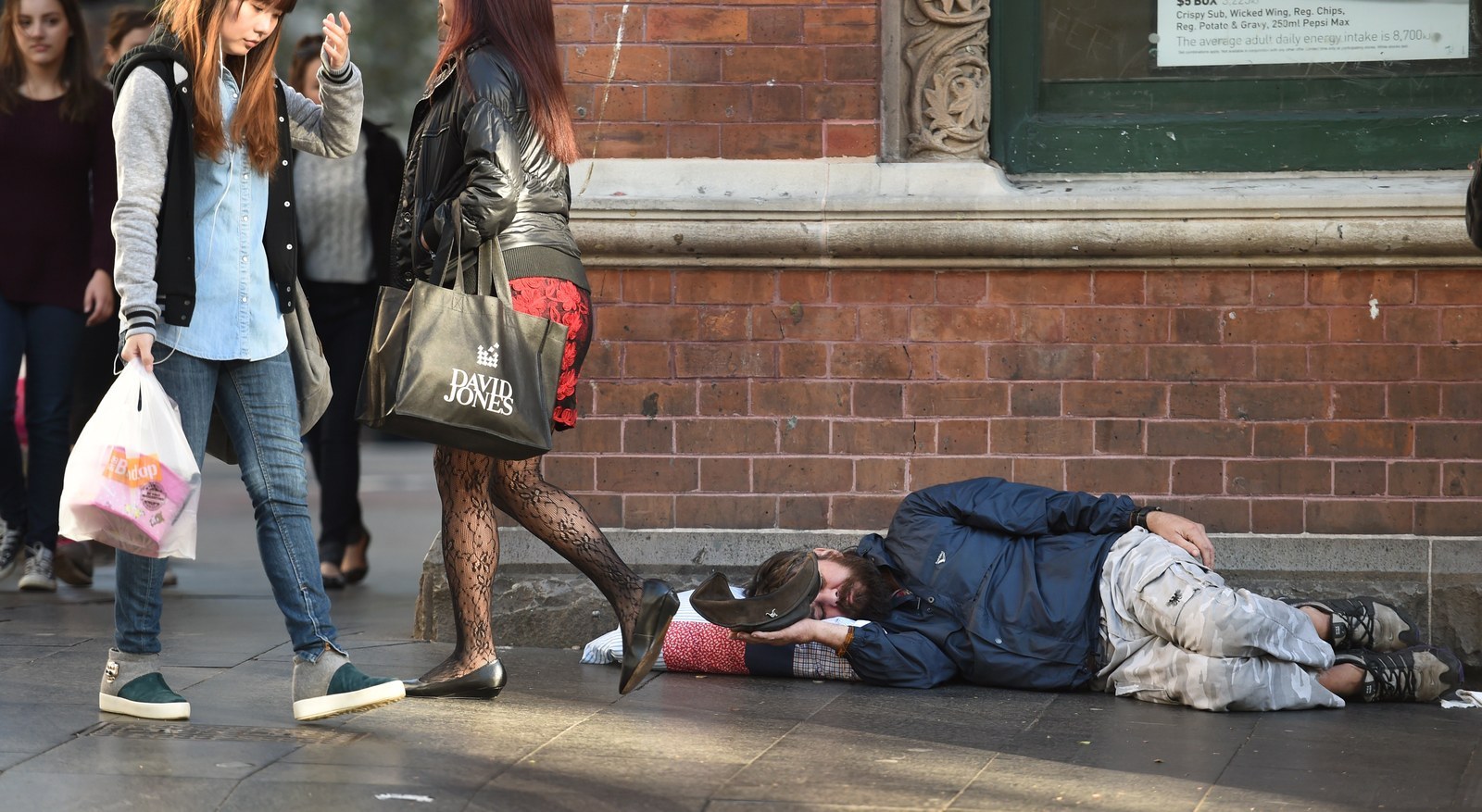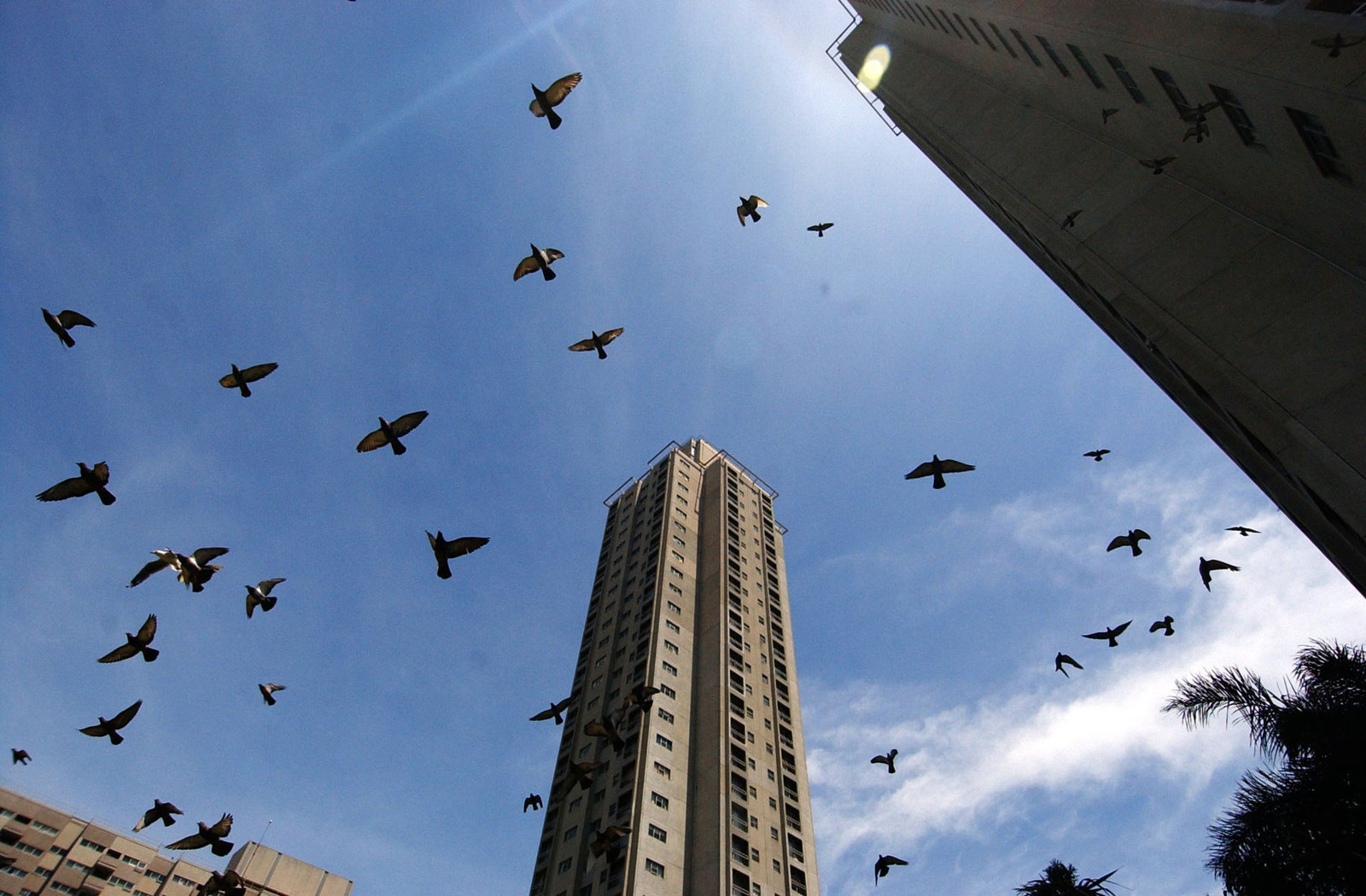On Tuesday, NSW Premier Mike Baird stood in Martin Place in Sydney's CBD, selling copies of the Big Issue. "It isn't fun being invisible" he wrote in a Facebook post asking Sydneysiders to acknowledge those less fortunate than themselves – "In fact, it is really lonely."

That Facebook post went viral. And praise for Australia's most popular politician flooded in. But among the praise some critics accused the Premier of a media stunt.
Speaking to BuzzFeed News, Baird said the Facebook post was a signal that the NSW government has a new priority: youth homelessness. And he is determined to get something done in this area. "We're going to change these kids lives," he says.
Late last year the Baird government whittled down what had been 321 state planning priorities to just 12, with youth homelessness making the cut.
The government says it's committed to reducing youth homelessness by 10% over his time in office. This amounts to less than 200 youths, but the task ahead is still daunting.
An August 2015 street count of homelessness across Sydney found the highest number of people sleeping rough since 2009, and key services say they're seeing unprecedented demand for help.
There are around 60,000 people on social housing waiting lists in NSW and nowhere near enough places for them. There are more than 28,000 homeless people in NSW, which represents a 20% rise in homelessness in the past decade, more than any other Australian state. Of those 28,000, around 7% are aged under 25. It's this 7% that Baird wants to help.
But to do so will require a whole-of-government response. Advocates say the Baird government needs to commit more resources to the sector. The premier says he's doing as much as he can.
“There’s a premier’s priority, which is a great thing in terms of having a goal to work towards, [but] what we need to see is some concrete commitment in these areas if you want to really see progress," says Katherine McKernan, CEO of Homelessness NSW.

One major issue for young people is the rising cost of living in Sydney. A young person on youth allowance can earn, at most, $433 a fortnight, and often quite a bit less. Of that, at least 60% will instantly disappear on room rental. Add in food, transport and utilities and a young person can pretty quickly find themselves in negative territory.
This is why fixing youth homelessness will take more than simply grabbing kids off the streets and finding them a shelter. Experts say systemic change is needed.
"Homelessness is usually a result of community support failing people. So to really address it you need commitment across a range of service systems, including the home care system, juvenile justice, education and housing," says McKernan.
For Baird, instituting this change is a personal goal.
"I’ve spent a lot of time with some of the youth services that operate as I’ve had the privilege of being in public office. They’re some of the most underrated and under-appreciated groups we have. On a daily basis they’re helping some of the most disadvantaged kids and giving them hope.
"And most importantly telling them that they matter. I think that’s the most important thing. Day after day they’ve been told that they don’t matter. And if we can work with those services who are doing incredible work, and tell them that they do matter, we can provide support to get them into education, support to get them into employment."

Dr Michael Coffey, the CEO of YFoundation, a support group for young homeless Australians, says Baird's concern is genuine and longstanding.
“I’ve had a bit to do with Mike Baird over the years and he's always had this really huge interest in youth. He’s had a really longstanding understanding of it. He’s been very involved with the local youth services in the Manly Warringah area as well," he says.
A major obstacle is the lack of available resources for youth services and affordable housing.
“We have services already in place. I think the 24/7 services are not properly resourced. They need a bit more resources to be able to function to their full extent. So there needs to be further investment in existing services," Coffey says.
"There are a whole lot of reasons that a young person can be forced out of the home. Then once they go into homelessness services, there needs to be more places for them to go after they’ve been through the services. There’s a chronic shortage of affordable housing and social housing. So we still need to build upon that."
To fix this, Baird and NSW Planning Minister Brad Hazzard want to massively boost social housing supplies, particularly in the inner-city where homelessness is most concentrated.
"For a long period, social housing has effectively dwindled," Baird says. "We've made a big priority of boosting it, and also renewing it. We made a recent decision on where a [train] station should go on the basis of the opportunity it provided in Waterloo, so there's over 2000 premises there."
That decision, to build a station at Waterloo rather than nearby Redfern, is a sign of the government's intent. Baird's cabinet was reportedly split on the issue, with the Treasurer, Roads and Transport ministers preferring a station at Redfern, while the housing, police and planning ministers preferring Waterloo.

Baird went with the Waterloo option, saying it would give new opportunities to the disadvantaged social housing residents of the area, which faces a decade of urban renewal under Baird's plan.
"There’s an opportunity to remove those [social housing towers]. A lot of them were built in the 1950s, so they’re run down. We think they should be renewed for those residents. And also mixed in with new housing. So social, affordable housing mixed in with new housing as part of an overall urban renewal," Baird says.
Last week, the premier sat down with key stakeholders for a discussion on what can be done to fix the issue. Those in the room say his commitment seemed genuine.
"The meeting last week is really a once-in-a-generation opportunity in the youth homelessness sector," he says. "I’m not going to make any grandiose statements about what we will do with the final outcomes. But there’s a political will. There’s a focus of resources and we want to put it in the right areas.
"So what we have a huge opportunity to make a difference. So over the next years, if we get an additional 10% of our youth who are homeless into supported, independent accommodation, well that’s a great thing."
